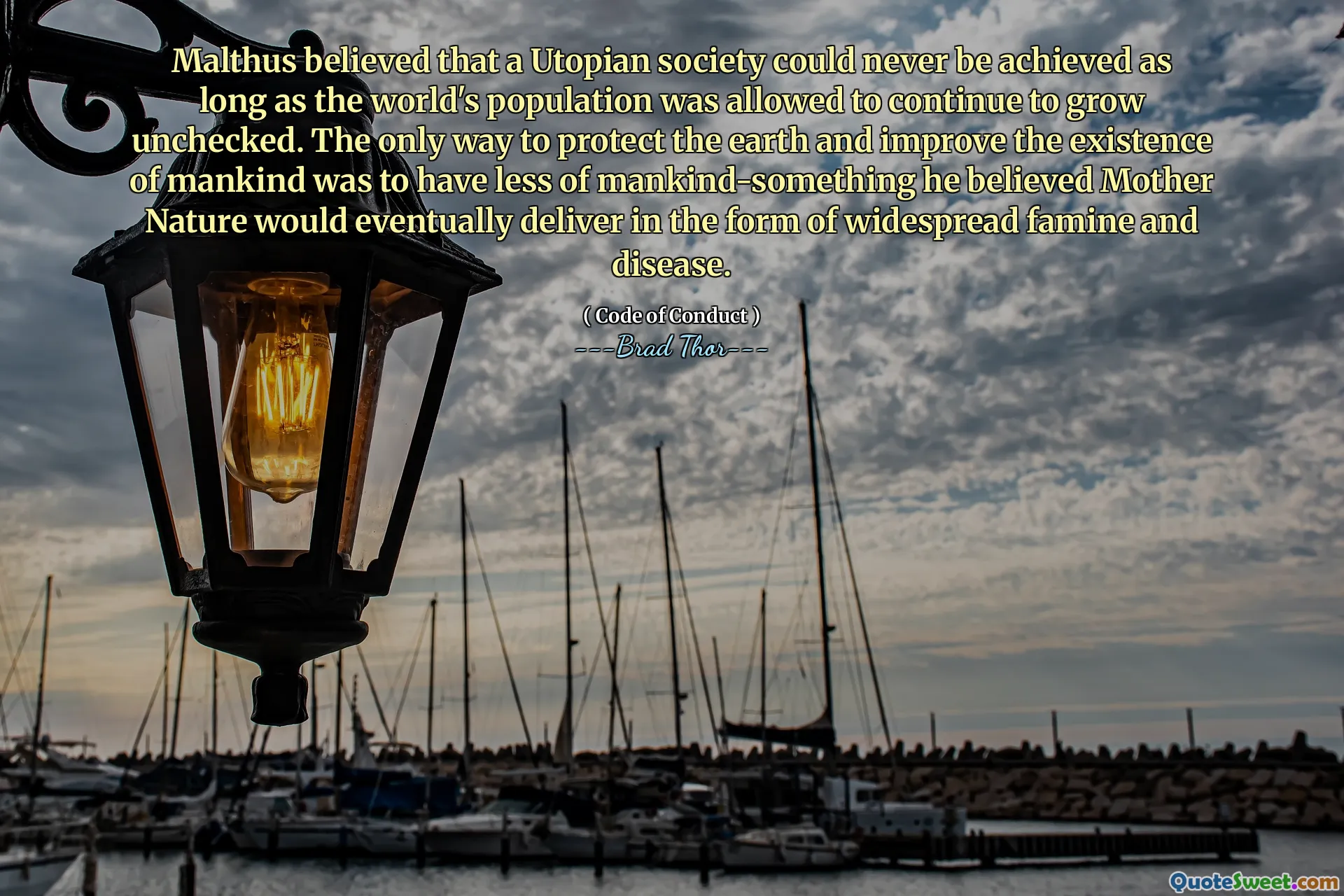
Malthus believed that a Utopian society could never be achieved as long as the world's population was allowed to continue to grow unchecked. The only way to protect the earth and improve the existence of mankind was to have less of mankind-something he believed Mother Nature would eventually deliver in the form of widespread famine and disease.
Malthus argued that the pursuit of a perfect society is fundamentally flawed due to unchecked population growth. He posited that, as the population expands, it would ultimately lead to resource depletion and environmental degradation. In his view, achieving a Utopian society would be impossible without curbing population increases.
He suggested that natural forces, particularly famine and disease, would eventually act as a check on humanity's growth. Malthus believed that these natural consequences would be necessary to ensure the sustainability of the planet and enhance human life, implying that a balance between population and resources is crucial for societal advancement.











